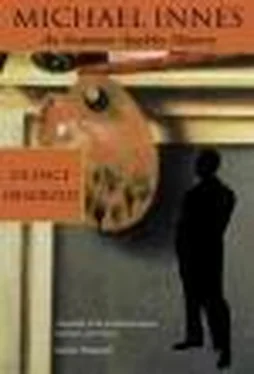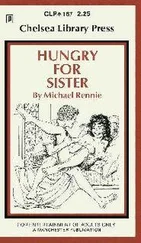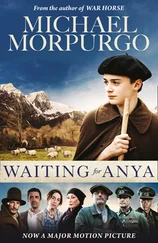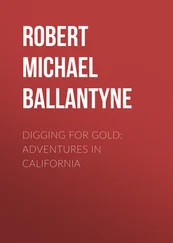Michael Innes - Lament for a Maker
Здесь есть возможность читать онлайн «Michael Innes - Lament for a Maker» весь текст электронной книги совершенно бесплатно (целиком полную версию без сокращений). В некоторых случаях можно слушать аудио, скачать через торрент в формате fb2 и присутствует краткое содержание. Жанр: Старинная литература, на английском языке. Описание произведения, (предисловие) а так же отзывы посетителей доступны на портале библиотеки ЛибКат.
- Название:Lament for a Maker
- Автор:
- Жанр:
- Год:неизвестен
- ISBN:нет данных
- Рейтинг книги:4 / 5. Голосов: 1
-
Избранное:Добавить в избранное
- Отзывы:
-
Ваша оценка:
- 80
- 1
- 2
- 3
- 4
- 5
Lament for a Maker: краткое содержание, описание и аннотация
Предлагаем к чтению аннотацию, описание, краткое содержание или предисловие (зависит от того, что написал сам автор книги «Lament for a Maker»). Если вы не нашли необходимую информацию о книге — напишите в комментариях, мы постараемся отыскать её.
Lament for a Maker — читать онлайн бесплатно полную книгу (весь текст) целиком
Ниже представлен текст книги, разбитый по страницам. Система сохранения места последней прочитанной страницы, позволяет с удобством читать онлайн бесплатно книгу «Lament for a Maker», без необходимости каждый раз заново искать на чём Вы остановились. Поставьте закладку, и сможете в любой момент перейти на страницу, на которой закончили чтение.
Интервал:
Закладка:
‘Dear me!’
‘But we must be accurate, Wedderburn; we must always be accurate. I hasten to add that this inclination may be a thing of the past.’
‘I am sure it is, Clanclacket.’
‘Eh – what’s that? You know nothing about it, man. I’m telling you that as a lad this Ranald ran away from home and went on the stage.’
‘Ah!’
‘Exactly. A thoroughly unstable stock. But we must be fair. He was then exceedingly young. And he was reclaimed. After some months – a year maybe – he was reclaimed and, of course, sent abroad. Colonial life was plainly the only thing. They chose Australia; it has the advantage over Canada in such cases of being three or four times as far away. But Ranald didn’t like it. On first seeing Fremantle harbour he endeavoured to commit suicide.’
‘Dear me! I suppose this is all ancient gossip now? It would be difficult to have that attempted suicide, for instance, sworn to?’
‘Really Wedderburn, you should know I never gossip. These are facts confidentially communicated. Long-past history though the incident be, and remote as is the site of it, I could as it happens put my finger on an eyewitness tomorrow. Ranald Guthrie, I say, attempted to drown himself and his life was fortunately saved by the bravery of his elder brother.’
‘So a brother went to Australia with him?’
‘Ian Guthrie. He too had given a little trouble. Not, I think, anything serious: I have no evidence of artistic temperament in Ian. Possibly merely a matter of young women; we must be fair. And I believe that no scandal circulated. Both these brothers were generally thought to have gone abroad because they were reluctant to enter the ministry. Of course when Ranald inherited he came home.’
‘Ian had died?’
‘Yes. There was some tragedy. I believe both went prospecting or exploring and that Ian got lost. His body was later recovered by a rescue party. Ranald, who is as I say an unstable person, was upset.’
‘Upset?’
‘ Greatly upset. When he came home he lived in a very peculiar manner. I understand that he still does and that he is, in fact, a miser and a recluse.’
‘Was.’
‘I beg your pardon, Wedderburn?’
‘Ranald Guthrie has just died. And here is Perth. I am afraid I must hurry. Pray, Clanclacket, keep Blackwood’s . Goodbye.’
2
From Perth to Dunwinnie the railway line had as yet been but imperfectly cleared of snow and as a result my train ran over an hour late. Once arrived, moreover, I had the utmost difficulty in securing a conveyance the driver of which was willing to undertake the perils of a night drive to Kinkeig. I was told that Dr Noble had been through, as also the police and the sheriff, and that word had come back of the sheriff’s judging it necessary to hold an inquiry into the manner of Mr Guthrie’s death. I saw that it was necessary to push forward and, having secured some modification – though a mere solacium indeed – of the first exorbitant tariff proposed, I succeeded in reaching Kinkeig without notable hazard just short of eleven o’clock. It is the merest hamlet and I counted myself fortunate in securing simple but adequate accommodation at an inn laconically known as the Arms.
My client, whom I supposed to be the young Mr Gylby, was still at Erchany and thither I proposed to proceed – I had better, perhaps, say penetrate – on the following morning. Precise information would then be available. Meanwhile I did not think it wise altogether to neglect the voice of rumour. I proceeded to the parlour – the bar being of course closed – and rang the bell. The mistress of the house, a Mrs Roberts, answered, and to her I said: ‘Would you be so good as to bring me–’
‘What you’ll be in need of,’ interrupted Mrs Roberts firmly, ‘is a nice cup of malted milk.’
It is a maxim of sound forensic practice that to give play to the eccentricities of a witness’ character is the surest technique for landing fish. I said: ‘That is exactly what I was going to ask for. Please let me have a nice cup of – ah – malted milk.’
Mrs Roberts hurried away and it is proper to testify that the potation with which she returned was not unpalatable. Moreover she was disposed to be talkative, and for the next half-hour I listened to information about the affair at Erchany which in places made me open my eyes very wide indeed. Little more than twenty-four hours before I had been absorbed in the tranquil study of in-field and out-field in the eighteenth century. Now I was confronted with a story having all the characteristics of what students call the Senecan Drama: revenge, murder, mutilations and a ghost. Must I confess to a trick of my nephew Aeneas’ temper coming upon me as I listened, and to an unwonted quickening of the pulse of the senior partner of Wedderburn, Wedderburn and McTodd? I have always felt a curious attraction in romances of detection – a species of popular fiction which bears much the same relation to the world of actual crime as does pastoral poetry to the realities of rural economy – and now as I listened to the good Mrs Roberts I seemed to be faced with a rank confusion of kinds. Mr Guthrie’s death was actual enough, but it was set in just such a context of fantasy as might have been woven round it by the operation of a wayward and irresponsible literary mind. Or perhaps it was rather the folk-mind, with its instinct for bizarre elaboration, that I had to deal with. In listening to Mrs Roberts I was listening to the voice of rumour, perhaps to the lingering myth-making faculty of simple people. Revenge, murder, mutilations and a ghost – these, it might be, were but adding one more to the romantic legends of the Guthries with which Clanclacket had been entertaining me earlier that day.
Revenge and murder. A certain Neil Lindsay, a young man of loose principles and a cruel heart, had taken upon himself to revive and prosecute an immemorial family feud with the Guthries. This he had done by hurling Ranald Guthrie from a high tower at midnight on Christmas Eve, stealing a large sum of gold, and making off with a young woman variously reported as his enemy’s ward, niece, daughter and mistress.
Mutilations and a ghost. Not content with these abominable deeds the young man Lindsay had paused in his flight to inflict a most horrid outrage upon Guthrie’s dead body, chopping a number of fingers from the corpse in macabre requital of some savage incident between the families five hundred years ago. And this lurid and perverted deed was in its turn crying out for vengeance; at the midnight of Christmas Day Ranald Guthrie’s ghost had been abroad in Kinkeig, waving its maimed hands to the moon and crying out awfully of that hell from which it had been a few hours released to walk the earth.
I have here compressed the narrative of Mrs Roberts into a few sentences; rumour is invariably diffuse. But I was, as I have intimated, curiously compelled by her wandering recital; the story had a measure of imaginative coherence which evoked something like conviction; I found a positive effort was required to view it critically – to note, for instance, the interesting rapidity with which the legend had been enriched with supernatural accretions. As a humble student of folklore I thought this aspect of Kinkeig’s reactions to the death of its laird worth some further inquiry. ‘Mrs Roberts,’ I asked, ‘have many folk seen the ghost?’
‘Faith, yes.’
‘You yourself?’
‘No, faith!’ Mrs Roberts looked quite scared at the mere suggestion.
‘Then who?’
Mrs Roberts considered. ‘The first would be Mistress McLaren, the smith’s wife. The pump in her yard was frozen fast and she was going down the road for water when she saw the uncouthy thing right afore her in the moonlight. She gave a scraitch poor creature, that was heard by half Kinkeig. And you couldn’t have better proof than that.’ Mrs Roberts must have detected a sceptical temper in my inquiries, for she produced Mrs McLaren’s conclusive scream with a good deal of triumph.
Читать дальшеИнтервал:
Закладка:
Похожие книги на «Lament for a Maker»
Представляем Вашему вниманию похожие книги на «Lament for a Maker» списком для выбора. Мы отобрали схожую по названию и смыслу литературу в надежде предоставить читателям больше вариантов отыскать новые, интересные, ещё непрочитанные произведения.
Обсуждение, отзывы о книге «Lament for a Maker» и просто собственные мнения читателей. Оставьте ваши комментарии, напишите, что Вы думаете о произведении, его смысле или главных героях. Укажите что конкретно понравилось, а что нет, и почему Вы так считаете.











